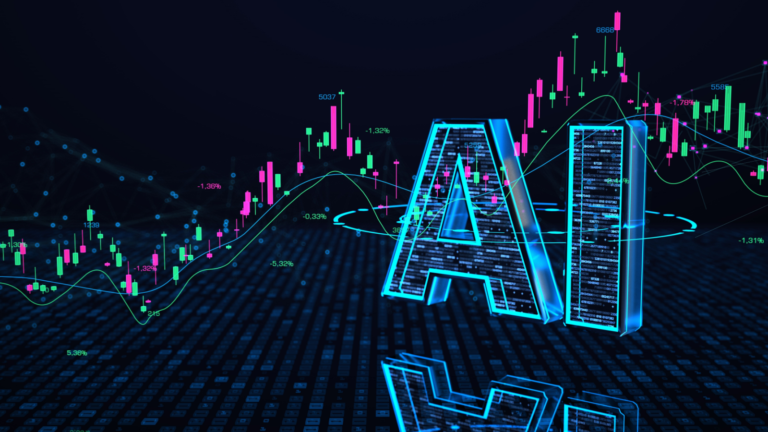The technology itself is contributing to the extensive discourse surrounding the possibilities of generative artificial intelligence (AI), according to an Accenture paper on the reinvention of work, workforce, and workers in the age of generative AI.
Work in a variety of sectors and domains could alter dramatically as a result of generative AI. According to a ChatGPT-generated comment that was included in the most recent Accenture report, the effects of generative AI on work will vary depending on how it is applied, controlled, and integrated into different industries and organizations. ‘How will generative AI change work?’ was the question that the response addressed.
The research on generative AI conducted by Accenture is hopeful, having been based on an examination of more than 700 client initiatives. Emerging technology, according to study, can improve customer relations, streamline operations, find new markets for goods and services, and boost profits.
Furthermore, the research indicates that generative AI presents a triple win: it can boost economic value and productivity, which in turn propels corporate expansion, while simultaneously encouraging more imaginative and fulfilling work for individuals.
The following are a few of the report’s main conclusions from Accenture:
- According to AI adoption and innovation scenarios, if businesses use generative AI responsibly and widely, they might generate more than $10.3 trillion in additional economic value by 2038.
2. According to respondents, their company’s market share will eventually rise due to generative AI, with 17% expecting a 10% or more growth.
3. Up to 95% of employees think that generative AI will be beneficial, but their main worry is that they don’t trust companies to make sure everyone will get what they want.
4. Compared to other firms, reinventors—who make up 9% of all organizations—are twice as likely to predict productivity increases of 20% or more over the following three years. Furthermore, two of the three respondents strongly concur that generative AI will make employment more meaningful and gratifying. According to Accenture’s research, among the 9% of firms that have developed the capacity for continuous reinvention, almost half (47%) are already thinking bigger—they understand that substantial process changes are necessary in order to properly utilize generative AI. However, just two-thirds of CxOs possess the expertise and skills required to successfully reimagine their companies.
5. Just 5% of businesses are actively reskilling their workforce at scale, despite the fact that 94% of respondents claim they are prepared to learn new skills in order to work with generative AI.
6. The majority of workers (95%) believe that working with generative AI will be beneficial, and 82% claim to already be somewhat knowledgeable with the technology.
7. Almost all CxOs (86%) think generative AI will revolutionize their industry and firm, and 86% of them are already utilizing it in some capacity. Every CxO questioned said they expected changes to their workforce, such as increasing or decreasing personnel and putting reskilling plans into action. However, only one in three leaders feel they can lead the necessary change because they have technological expertise or can craft a powerful transformation story.
8. For generative AI to be successfully adopted and implemented, trust is essential. Additionally, people must have faith that the company will use technology in ways that safeguard and prepare its employees. One of the main obstacles to using generative AI, according to nearly a third (32%) of leaders, is a lack of talent because of skill gaps or ignorance. Furthermore, 36% think that a lack of technological knowledge will prevent workers from embracing the technology to its fullest.
8. The economy, business, and people present a unique set of opportunities that might generate an extra $10.3 trillion in economic value by 2038. According to the majority of CxOs, generative AI will eventually boost their company’s market share; 17% of them think it will increase by 10% or more.
9. According to research by Accenture, assisting individuals in becoming “Net Better Off” releases nearly two-thirds (64%) of their potential at work.
9. More than half of CEOs acknowledge they don’t have the technical expertise needed for transformation driven by generative AI. According to Accenture, one must earn the right to lead a business through the generative AI journey, particularly in light of the trust gap that the research revealed. The foundations of AI and digital adjacencies—cloud, data, and security—must be understood before utilizing this learning architecture.
10. AI is going to reinvent work. To achieve the triple threat of potential from generative AI, over half of reinventors, or the 9% of firms that are leaders in reinvention, acknowledge that major changes will be needed to processes along the value chain.
11. Generative AI will reinvent the workforce and skills. Businesses that are skills-driven are adaptable and equipped with the predictive insights on skills required to reconfigure their workforce, both now and in the future. They have a strong skills infrastructure and tools, as well as integrated data throughout the organization.
12. According to economic studies, investments in training and other pertinent human capital should outweigh those in technology by a factor of nine.
The study’s conclusion from Accenture serves as a kind reminder to corporate executives: “As leaders, we are fortunate if we get just one chance in our careers to find a true catalyst for significant change. The chance lies in generative AI.”








